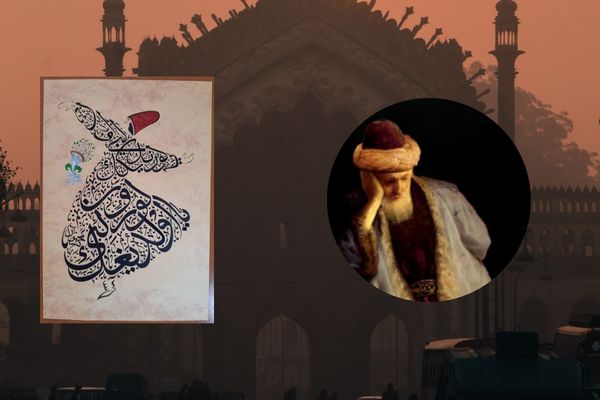Jalāl al-Dīn Muḥammad Rūmī, commonly known as Rumi, was a 13th-century Persian poet, Islamic scholar, and Sufi mystic whose profound works have transcended time and cultural boundaries. Born on September 30, 1207, in Balkh (present-day Afghanistan) or Wakhsh (present-day Tajikistan), Rumi's early life was marked by significant upheaval. His family fled the advancing Mongol armies, eventually settling in Konya, within the Sultanate of Rum (modern-day Turkey).
In Konya, Rumi pursued rigorous studies in Islamic jurisprudence, theology, and Sufism, following in the scholarly footsteps of his father, Bahāʾ al-Dīn Walad. A pivotal moment in Rumi's spiritual journey occurred in 1244 when he encountered the enigmatic dervish Shams al-Din Tabrizi. This profound friendship transformed Rumi's life, inspiring a vast body of lyrical poetry expressing themes of divine love, unity, and the human soul's quest for transcendence.
Among Rumi's most celebrated works is the "Masnavi-ye Ma'navi" ("Spiritual Couplets"), an extensive six-volume poem that delves into Sufi teachings and metaphysical concepts. This masterpiece has been lauded as one of the greatest contributions to Persian literature and has significantly influenced Islamic mysticism.
Rumi's poetry, originally penned in Persian, has been translated into numerous languages, resonating with audiences worldwide. His verses emphasize the importance of love as a unifying force and advocate for the transcendence of individual ego to achieve spiritual enlightenment. These universal themes have cemented Rumi's status as one of the most beloved poets globally.
Rumi passed away on December 17, 1273, in Konya, where his tomb has since become a pilgrimage site. Following his death, his disciples established the Mevlevi Order, also known as the Whirling Dervishes, renowned for their meditative dance rituals symbolizing the soul's ascent toward the divine.
Rumi's enduring legacy continues to inspire and guide individuals on spiritual paths, bridging cultural and religious divides through the timeless wisdom of his poetry.
Sokhanvar information
Published on Dec. 24, 2024, 2:41 p.m. by @admin
- Name: Jalāl al-Dīn Muḥammad Rūmī
- Persian Name:: جلالالدین محمّد رومی
- Alias: Molavi, Rumi
- Comments: 0
- Views: 860
Works
Maṭnawīye Ma'nawī (Spiritual Couplets; مثنوی معنوی)
Dīwān-e Kabīr (Great Work) or Dīwān-e Shams-e Tabrīzī (The Works of Shams of Tabriz; دیوان شمس تبریزی)
Fihi Ma Fihi (In It What's in It, Persian: فیه ما فیه)
Majāles-e Sab'a (Seven Sessions, Persian: مجالس سبعه)
Makatib (The Letters, Persian: مکاتیب) or Maktubat (مکتوبات)

